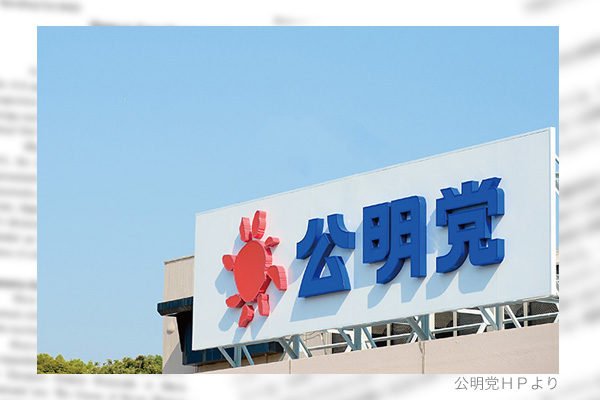The Komeito party, which is supported by Soka Gakkai as Japan’s largest religious organization and has formed a ruling coalition with the Liberal Democratic Party, has regarded itself as a “party of peace” or a “party of human rights.” Given this, the time has come for Komeito to protest against Chinese officials’ human rights abuse in Hong Kong, the Xinjiang Uyghur Autonomous Region, Tibet and South Mongolia (the Inner Mongolia Autonomous Region). In fact, however, Komeito has done the opposite.
The supra-partisan Japan-Uyghur Parliamentarians’ League and five other organizations are trying to lead the National Diet to adopt early a resolution condemning China’s serious human rights abuse. But the adoption has been delayed as Komeito at its consultations with the LDP showed its unwillingness to have the resolution adopted before Prime Minister Yoshihide Suga’s visit to the U.S. for a bilateral summit.
The league has had no choice but to accept the Komeito demand because any Diet resolution has to be adopted unanimously in principle. Regarding Komeito’s reluctance, a senior member of the league commented that the party may be concerned that the adoption of such resolution before the Japan-U.S. summit would lead the human rights issue to attract public attention and that China could harshly react.
Listen to Uyghurs
At a press conference on March 30, Komeito leader Natsuo Yamaguchi indicated a negative attitude toward Japan’s potential sanctions on China to keep step with Western democracies over human rights issues. “If Japan were to impose sanctions, there should be a basis for Japan to identify human rights abuse,” he said. “If without such basis, Japanese sanctions would unnecessarily trigger a diplomatic problem.”
Komeito made efforts to pave the way for Japan’s normalization of relations with China in 1972 and has served as a channel between Japan and the Chinese Communist Party. Yamaguchi visited China in January 2013, becoming the first Japanese VIP to meet with soon-to-be President Xi Jinping after Xi was appointed as general secretary of the CCP. Backed by such history, Komeito has persistently offered understanding of Chinese positions. Even at a time when China’s human rights abuse has come under global fire, Komeito still cares for China and maintains its attitude of defending China.
Yamaguchi should immediately meet with Uyghur diaspora in Japan and listen to them explaining how they have been cracked down on.
“As nearly a half century has passed since the normalization of Japan-China relations, circumstances surrounding Japan and China have dramatically changed,” a Soka Gakkai official said. “Premier Zhou Enlai and other Chinese leaders that Komeito and Soka Gakkai valued have already passed away. What Komeito should do now may be taking initiative in criticizing the Xi Jinping regime’s hegemonism and human rights abuse and urging it to correct its behavior.” Yamaguchi should listen to opinions from the party’s power base, instead of caring too much for Beijing.
LDP plunging into “vote trap”
Another serious problem is that most of LDP lawmakers have remained silent about Komeito’s attitude because many LDP Diet members from single-seat constituencies expect support from Komeito. As China has lured developing countries into a “debt trap” by offering massive loans to them, Komeito might have lured LDP lawmakers into a “vote trap.” The LDP-Komeito coalition may be problematic if LDP lawmakers cannot say what they should say because of the vote trap. Japan should not remain silent about China’s serious human rights abuse.
Takashi Arimoto is publisher of Monthly Magazine SEIRON at the Sankei Shimbun newspaper.


